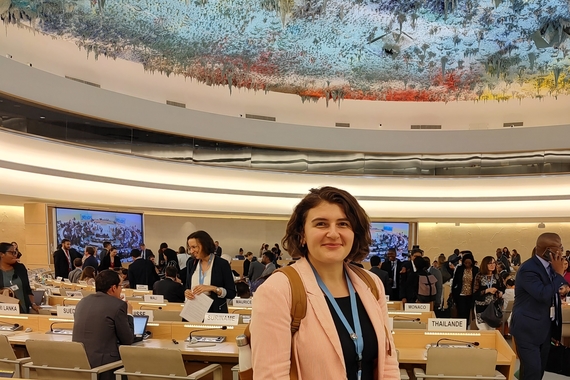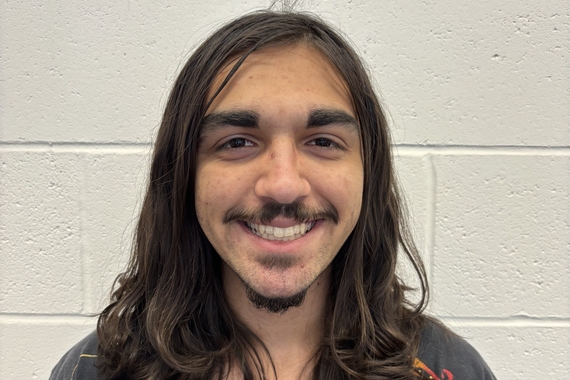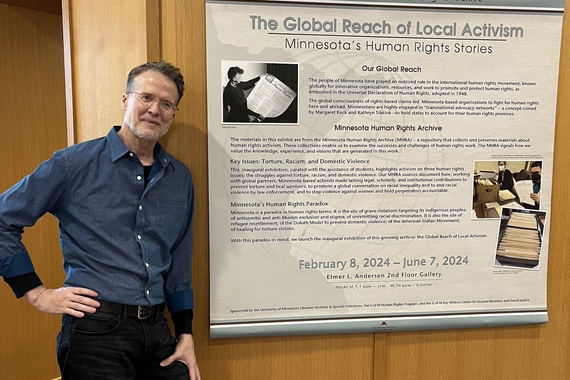Collaborating Across Communities to Address Health and Wellbeing
Elexis Trinity is a second year Master of Human Rights student concentrating in Russian studies and research methods with a plan to minor in Law and Science, Technology and Environmental Policy.
Human Rights Program (HRP): Tell us about where you worked over the summer and what you were working on while there.
Elexis Trinity (ET): Over the summer I had the distinct pleasure of working with Carver County Public Health to develop a community engagement and qualitative research strategy in support of their health needs assessment process, collaborating with outreach specialist and fellow Humphrey student Blanca Martinez Gavina (MPA ’20) and another nonprofit colleague. We designed and implemented a coordinated engagement process to identify gaps in inclusive community health through participatory research and concerted collaborative action. So far, we have engaged 377 residents of Carver County in sharing stories, insights, and feedback on their experiences with public health, equity and inclusion in the county. Currently, we are analyzing several hundred interviews for evaluation based upon a community welcome and accessibility scale that I designed, drawing in part on concepts from my coursework in qualitative methods and my colleague’s research experiences in urban policy.
I also spent time co-designing and managing two conferences for the Catalyst Initiative of the Minneapolis Foundation. In August, the event focused on the role of joy and creative practice in supporting healing and wellbeing, featuring a number of breakout sessions centered on embodied practices and performative therapies. The following month, I oversaw Building Resilience: Preventing Diseases of Despair, a conference dedicated to the primary prevention of addiction and suicide.
This year, I will continue collaborating with the Catalyst Initiative on three new events (including another session of Healing from Trauma in March) and in retooling the process by which we evaluate our work together. Additionally, I have just begun working with the Hennepin County Department of Community Corrections and Rehabilitation (DOCCR) on a 14-month project which seeks to create more opportunities for community perspectives to inform, influence and provide input on departmental policies, programs, and services through the development of a sustainable, independent community advisory board.
HRP: How has the MHR program helped you in your professional/research roles thus far? What have you learned or where have you seen personal growth?
ET: Currently, I work full-time as a research and project director at Marnita’s Table, where we bring people together to find common ground on important public policy issues and to learn how to collaborate more effectively by mobilizing techniques and insights drawn from experience engineering and social inclusion research. As a community-based researcher passionate about creating more seats at the proverbial “table,” it has been exciting to incorporate new learning from my methods courses directly into my work with counties, nonprofits, and other community partners. For this reason, my first-year qualitative methods and statistics courses have been among my favorites so far.
HRP: How do you think your MHR degree and the experiences you have had in the program so far will help you in your future career?
ET: As an aspiring PhD student, I’ve really enjoyed expanding the domestic focus of my professional work to consider international and transnational rights regimes and to explore possible avenues for long-term independent research. The freedom and flexibility the program has afforded me in preparing for further graduate study by developing my Russian language skills and broadening my experience in applied and basic research has been absolutely invaluable. The joint support of the CLA and the Humphrey has been particularly instrumental in making this possible, allowing me to pursue interesting topics courses pertinent to my research across the university catalogue alongside applied methods training and skills-based courses with direct application to my immediate projects and future aspirations.
HRP: What are your degree concentrations? Are you working toward any other degrees or graduate minors right now?
ET: I am concentrating in Russian studies and research methods and plan to complete two graduate minors – Law and Science, Technology and Environmental Policy – in support of my research interests at the intersection of human rights, emerging technologies, and international law and policy.
*Responses have been edited for clarity and length.



